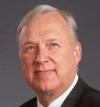The Stem Cell Debate: Ethical QuestionsThe
story for the year 1997 was the cloning controversy, the public debate over
cloning human beings. Ian Wilmut, the laboratory midwife to the world famous
sheep, Dolly, never intended to clone a human being. He still opposes the idea.
Almost everyone opposes the idea. Then, during 1999, we opened the first few pages on chapter two of the cloning controversy story. I will refer to this chapter as "the stem cell debate." The debate has only begun. What is not yet clear is just what needs to be debated. Perhaps nothing. Perhaps everything. What is clear is that the fallout from the cloning explosion is still lighting fires here and there. Whether or not the public will add stem cells to the fuel to make those fires burn hotter remains to be seen. Stem cells have become front page news in Australia, as well as in the United States and other countries. On February 4, 1999, the Australian National Academy of Science issued a position statement. Note the structure of Recommendation 1. Council considers that
reproductive cloning to produce human fetuses is unethical and unsafe and
should be prohibited....However, human cells derived from cloning techniques,
from ES cell lines, or from primordial germ cells should not be precluded from
use in approved research activities in cellular and developmental biology Here two things are put together. First, disapproval of reproductive cloning for the purposes of making children. Second, approval of research on human embryonic stem cells, approval even in the face of ethical squeamishness regarding embryo research. If this Australian statement is a barometer, we need to ask: what is the cultural weather forecast? What might be coming? In what follows it will be my task to report on the fast-moving frontier of stem cell research within the field of genetics. I will try to identify the ethical questions that are relevant to what could turn out to be one of the most dramatic new chapters in medical history, a chapter just beginning and expected to continue over the next decade or longer. Then I will try to formulate questions regarding theological anthropology, agenda questions raised by science that need to be addressed by systematic theologians and public policy makers. I will ask more questions than I am ready to answer. Yet, I believe that such work invested in trying to formulate the relevant question (die Fragestellung) takes us more than just halfway toward a helpful answer.
Email link | Printer-friendly | Feedback | Contributed by: Dr. Ted Peters |


 Dr. Ted Peters
Dr. Ted Peters

